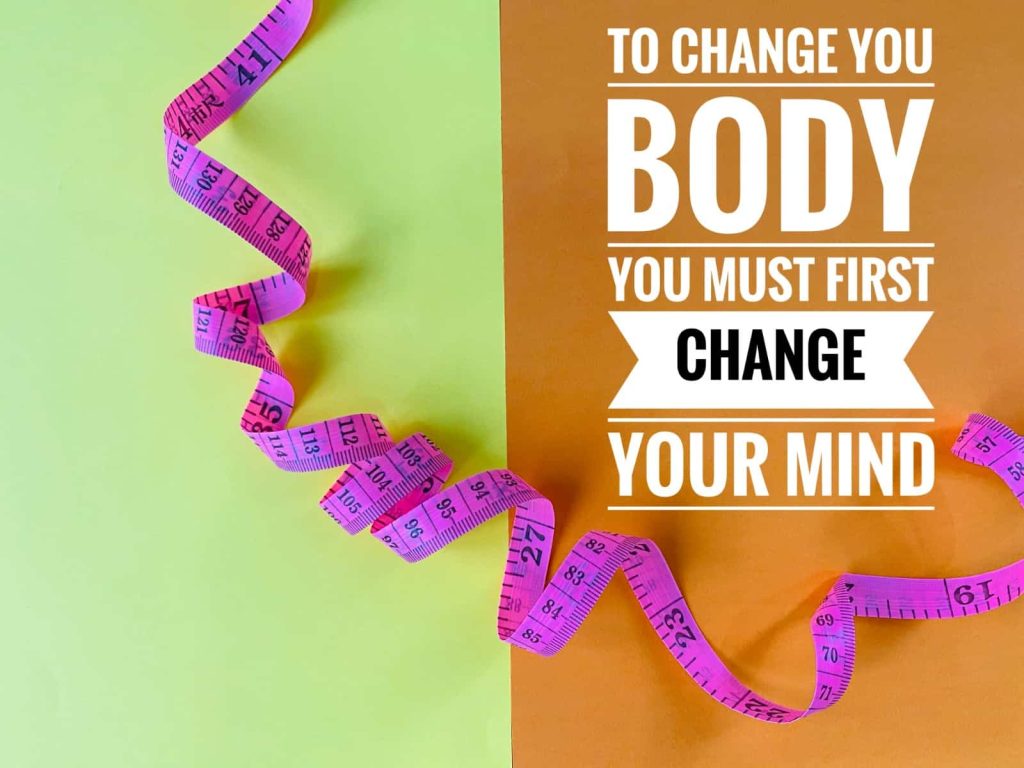
Weight management is a journey that encompasses much more than just shedding pounds. It involves a comprehensive understanding of your body’s needs, the factors influencing weight gain or loss, and the psychological aspects that play a crucial role in your journey towards a healthier lifestyle. It’s essential to recognize that weight management isn’t solely about aesthetics but about fostering overall well-being. By delving into the intricacies of metabolism, nutrition, and exercise, you can develop a holistic approach that aligns with your body’s unique requirements.
Embarking on your weight management journey begins with self-awareness. Take the time to understand your body type, metabolism, and any underlying health conditions that may impact your progress. Consultation with healthcare professionals or nutritionists can provide valuable insights into crafting a personalized plan tailored to your needs. Moreover, recognizing the role of psychological factors such as stress, emotional eating, and body image perceptions is vital. Addressing these aspects alongside physical changes ensures a holistic approach to weight management that nurtures both body and mind.
Crafting a Sustainable Nutrition Plan
Nutrition serves as the foundation of any successful weight management strategy. However, the key lies not in restrictive diets or quick fixes but in adopting a sustainable approach that nourishes your body while promoting weight loss or maintenance. Embrace whole, nutrient-dense foods that fuel your body and provide satiety, making it easier to adhere to your dietary goals in the long run. Prioritize a balanced intake of macronutrients – carbohydrates, proteins, and fats – while incorporating plenty of fruits, vegetables, lean proteins, and healthy fats into your meals.
A sustainable nutrition plan also entails mindful eating practices. Slow down and savor each bite, paying attention to hunger and fullness cues. Avoid distractions while eating, such as screens or work-related tasks, to foster a deeper connection with your food and body. Additionally, practicing portion control can prevent overeating and promote healthier eating habits. Consider using smaller plates, measuring portions, or pre-portioning snacks to avoid mindless consumption. By cultivating a positive relationship with food and adopting sustainable eating habits, you lay the groundwork for lasting weight management success.
Physical Activity as a Lifestyle
Physical activity is a cornerstone of effective weight management, offering numerous benefits beyond calorie expenditure. Engaging in regular exercise not only aids in weight loss but also improves cardiovascular health, enhances mood, and boosts overall well-being. However, finding an exercise routine that suits your preferences, lifestyle, and fitness level is crucial for long-term adherence. Whether you enjoy brisk walks, strength training, yoga, or dance classes, incorporating activities you love ensures that staying active becomes a sustainable part of your lifestyle.
Consistency is key when it comes to reaping the rewards of physical activity. Aim for at least 150 minutes of moderate-intensity exercise or 75 minutes of vigorous activity per week, as recommended by health guidelines. However, don’t underestimate the power of incorporating movement into your daily life. Simple habits such as taking the stairs, parking farther away, or opting for active leisure activities can contribute to your overall activity level. Additionally, don’t forget to listen to your body and allow for adequate rest and recovery between workouts to prevent burnout and injury.
Harnessing the Power of Mindfulness and Stress Management
The mind-body connection plays a significant role in weight management, highlighting the importance of cultivating mindfulness and effective stress management techniques. Chronic stress can lead to overeating, cravings for unhealthy foods, and disruptions in hormone levels, all of which can hinder weight loss efforts. Therefore, incorporating practices that promote relaxation, such as meditation, deep breathing exercises, or yoga, is essential for mitigating stress and fostering a positive mindset.
Mindful eating is another powerful tool for weight management, allowing you to tune into your body’s hunger and fullness signals while savoring the sensory experience of eating. Practice mindful eating by engaging all your senses, observing the colors, textures, and flavors of your food, and savoring each bite without judgment. Additionally, cultivate awareness of emotional triggers that may lead to overeating, such as boredom, loneliness, or stress, and develop alternative coping mechanisms to address them effectively.
Setting Realistic Goals and Tracking Progress
Effective weight management requires setting realistic and achievable goals that align with your lifestyle, preferences, and capabilities. Rather than focusing solely on the number on the scale, consider setting goals related to behavior changes, such as increasing vegetable intake, exercising regularly, or reducing sugary snacks. Break down larger goals into smaller, measurable milestones to track your progress and celebrate your successes along the way.
Tracking your food intake, physical activity, and other relevant metrics can provide valuable insights into your habits and progress. Whether you prefer journaling, using mobile apps, or wearable fitness trackers, find a method that works for you and allows you to monitor your behaviors consistently. Regularly reviewing your progress enables you to identify areas for improvement, adjust your strategies as needed, and stay motivated on your weight management journey.
Building a Supportive Environment
Creating a supportive environment is essential for sustaining your weight management efforts in the long term. Surround yourself with individuals who encourage and motivate you to make healthy choices, whether it’s friends, family members, or like-minded individuals in online communities or support groups. Share your goals and challenges with others, and seek accountability partners who can help keep you on track and provide support during challenging times.
In addition to social support, optimizing your physical environment can also facilitate healthy behaviors. Stock your kitchen with nutritious foods, keep healthy snacks readily available, and minimize the presence of highly processed or calorie-dense foods that may tempt you during moments of weakness. Furthermore, consider enlisting the help of professionals such as personal trainers, nutritionists, or therapists who can provide expertise and guidance tailored to your needs.
Overcoming Challenges and Staying Motivated
While embarking on a weight management journey can be empowering, it’s not without its challenges. From plateaus and setbacks to lifestyle disruptions and cravings, staying motivated in the face of adversity is key to long-term success. Cultivate resilience by reframing obstacles as opportunities for growth and learning rather than insurmountable barriers. Adopt a growth mindset that embraces progress over perfection and celebrates every small victory along the way.
Finding intrinsic sources of motivation can also sustain your commitment to weight management. Identify your personal reasons for wanting to achieve your goals, whether it’s improving your health, enhancing your self-confidence, or setting a positive example for loved ones. Visualize your success, create a vision board, or keep a journal to remind yourself of your aspirations and the progress you’ve made. Additionally, reward yourself for reaching milestones, whether it’s treating yourself to a spa day, buying new workout gear, or enjoying a favorite activity.
Adapting to Lifestyle Changes
As you progress on your weight management journey, be prepared to adapt to evolving circumstances and lifestyle changes. Life is dynamic, and what works for you today may need adjustments tomorrow. Stay flexible and open-minded, experimenting with different strategies and approaches to find what best fits your current needs and priorities. Remember that setbacks are a natural part of any journey, and resilience lies in your ability to adapt, learn, and grow from them.
Maintaining a healthy lifestyle involves striking a balance between consistency and flexibility. While it’s important to stay committed to your goals, allow yourself the freedom to enjoy occasional indulgences or take breaks when needed. Avoid falling into the trap of all-or-nothing thinking, which can lead to guilt and frustration. Instead, practice moderation and self-compassion, acknowledging that one misstep does not define your entire journey. By embracing change and adapting to life’s twists and turns, you’ll continue to progress towards your weight management goals with resilience and grace.
Cultivating a Positive Body Image
A positive body image is essential for overall well-being and plays a significant role in successful weight management. Instead of fixating on societal standards or comparing yourself to unrealistic ideals, focus on nurturing a healthy relationship with your body based on self-acceptance, respect, and appreciation. Recognize that beauty comes in all shapes and sizes, and your worth is not determined by the number on the scale.
Practice self-care activities that promote body positivity and self-love, such as engaging in activities that make you feel good, practicing gratitude for your body’s capabilities, and surrounding yourself with supportive influences that celebrate diversity and inclusivity. Challenge negative self-talk and replace it with affirming statements that uplift and empower you. Treat yourself with the same kindness and compassion that you would extend to a loved one, honoring your body as a temple deserving of love and care.
Seeking Professional Guidance When Needed
While self-directed approaches to weight management can be effective, there are times when seeking professional guidance is beneficial. If you’re struggling to make progress, experiencing persistent health issues, or feeling overwhelmed by conflicting information, consider consulting with healthcare professionals who specialize in weight management, such as registered dietitians, personal trainers, or psychologists.
These experts can provide evidence-based advice, personalized recommendations, and ongoing support to help you navigate your weight management journey more effectively. They can conduct assessments to identify underlying factors impacting your progress, develop tailored plans to address your specific needs, and provide accountability and encouragement along the way. Don’t hesitate to reach out for help when needed; investing in your health and well-being is one of the most valuable decisions you can make.
Harnessing the Power of Technology
In today’s digital age, technology offers a wealth of resources and tools to support your weight management efforts. From mobile apps and wearable devices to online communities and virtual coaching platforms, there are endless opportunities to leverage technology in your journey towards a healthier lifestyle. Consider using apps to track your food intake, monitor your physical activity, set reminders for hydration or meal planning, or access educational resources and healthy recipes.
Wearable fitness trackers can provide real-time feedback on your activity levels, sleep quality, and even stress levels, empowering you to make informed decisions about your health habits. Online communities and social media platforms offer opportunities to connect with like-minded individuals, share experiences, and find support and motivation from peers. Virtual coaching platforms provide access to expert guidance and accountability from the comfort of your own home, making it easier than ever to stay on track with your weight management goals.
Addressing Emotional Eating and Food Relationships
Emotional eating is a common barrier to successful weight management, often triggered by stress, boredom, loneliness, or other emotional cues. Learning to recognize and address emotional eating patterns is essential for fostering a healthier relationship with food and achieving sustainable weight loss. Start by identifying your triggers for emotional eating, whether it’s specific emotions, situations, or thought patterns.
Develop alternative coping strategies to address emotional triggers without turning to food, such as practicing mindfulness, engaging in stress-reducing activities, or seeking support from friends or professionals. Cultivate a greater awareness of hunger and fullness cues, distinguishing between physical hunger and emotional hunger. Additionally, practice self-compassion and forgiveness when slip-ups occur, recognizing that emotional eating is a learned behavior that can be unlearned with time and practice.
Making Sleep a Priority
Quality sleep is often overlooked but plays a crucial role in weight management and overall health. Sleep deprivation can disrupt hormone levels, leading to increased hunger and cravings for high-calorie foods, as well as impairing metabolism and energy expenditure. Therefore, making sleep a priority is essential for supporting your weight management efforts.
Establish a consistent sleep schedule, aiming for 7-9 hours of quality sleep per night. Create a relaxing bedtime routine to signal to your body that it’s time to wind down, such as dimming lights, avoiding screens, and engaging in calming activities like reading or meditation. Create a comfortable sleep environment that promotes restful sleep, including a supportive mattress, comfortable bedding, and a cool, quiet, and dark room. By prioritizing sleep, you’ll not only support your weight management goals but also enhance your overall health and well-being.
Celebrating Non-Scale Victories
While the scale can be a useful tool for tracking progress, it’s essential to recognize that weight loss is just one aspect of your journey towards better health. Non-scale victories, such as improved energy levels, increased strength and flexibility, better mood, and enhanced self-confidence, are equally important indicators of success. Celebrate these victories along the way to stay motivated and focused on your long-term goals.
Keep a journal of non-scale victories, both big and small, to remind yourself of how far you’ve come and the positive changes you’ve experienced. Take note of improvements in your fitness level, changes in clothing fit, compliments from others, or accomplishments in activities you enjoy. Shift your focus from the number on the scale to the myriad ways in which your body and mind are transforming for the better. By celebrating non-scale victories, you’ll cultivate a positive mindset and sustain your motivation throughout your weight management journey.
Cultivating Long-Term Habits for Lasting Success
Ultimately, the key to successful weight management lies in cultivating long-term habits that support your health and well-being for life. Rather than viewing weight loss as a temporary fix, adopt a mindset focused on creating sustainable lifestyle changes that you can maintain over the long term. Embrace habits that nourish your body, mind, and soul, promoting holistic wellness and resilience against future challenges.
Focus on progress over perfection, understanding that sustainable change takes time and consistency. Be patient with yourself and trust in the process, knowing that every positive choice you make contributes to your overall health and happiness. Surround yourself with supportive influences, stay open to learning and growth, and never underestimate the power of small, consistent actions in creating lasting transformation. By embracing a lifestyle centered on balance, self-care, and self-love, you’ll not only achieve your weight management goals but also unlock a newfound sense of vitality and fulfillment.

